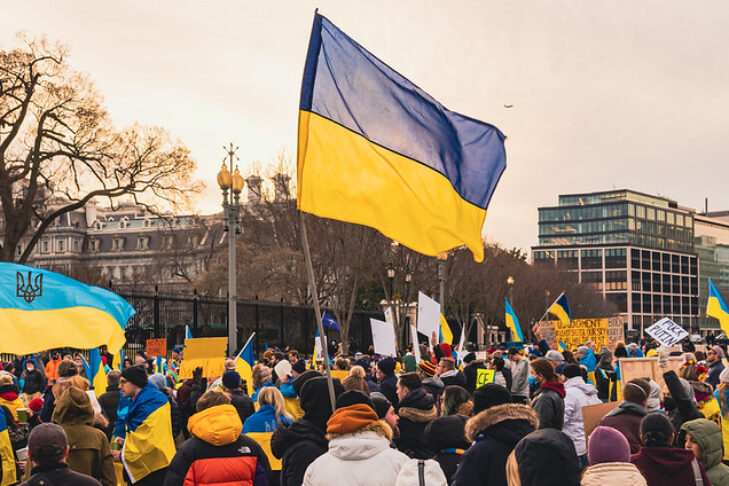This week, once again, our teachers were called upon to support their students as they navigated tragic and frightening world news in response to the Russian invasion of Ukraine. We heard from teachers on Monday that it was quickly apparent that many children, even from our youngest students in Gan Nitzan (Kindergarten) up to our Middle School students, arrived full of thoughts and questions about the news. Our teachers rose to the challenge of leading thoughtful and caring discussions, keeping in mind the varied needs of all their students.
In leading these difficult conversations, our teachers are attuned to the developmental stages of the children in their classrooms, the fact that families might vary in how they are approaching the topic at home and, that, regardless of age, students can have very different emotional responses to the news. We are aware some children had extensive conversations at home, some little to none; some might show a great deal of interest in the news, others will not tune in; some families have close ties to the region and for them this is a very personal experience; some children will clearly express their emotions; other children may look disinterested but are actually taking it all in. It is not uncommon for kids (and adults) to act silly or giggle when a serious topic stirs up emotions for them, making it look like they don’t care when, in fact, the opposite is true.
On Wednesday, the Middle School participated in a guided conversation introduced by Josh Mocle, sixth grade humanities teacher and seventh grade social studies teacher, who presented some historical context and basic facts about the war before the students were divided into small discussion groups within their grades. These discussion groups used the Facing History & Ourselves framework “Head, Heart, Conscience” as a platform to allow the students to first clarify their thoughts and questions about what they know about the war, then to express any feelings it brings up for them personally and ending by thinking together about greater humanity and how to help those who are suffering more directly in that region.
Listening to the teachers share the conversations they had with the children was another reminder of what a thoughtful and compassionate community we have at JCDS. Unfortunately, we know that as the war continues to play out, the questions and conversations will continue. Below are some resources that can remind us how to support these conversations.
- “How to Talk to Kids About Ukraine” by The New York Times
- “How to Talk to Children About What’s Happening in Ukraine” by the American Academy of Child and Adolescent Psychiatry
This post has been contributed by a third party. The opinions, facts and any media content are presented solely by the author, and JewishBoston assumes no responsibility for them. Want to add your voice to the conversation? Publish your own post here. MORE



